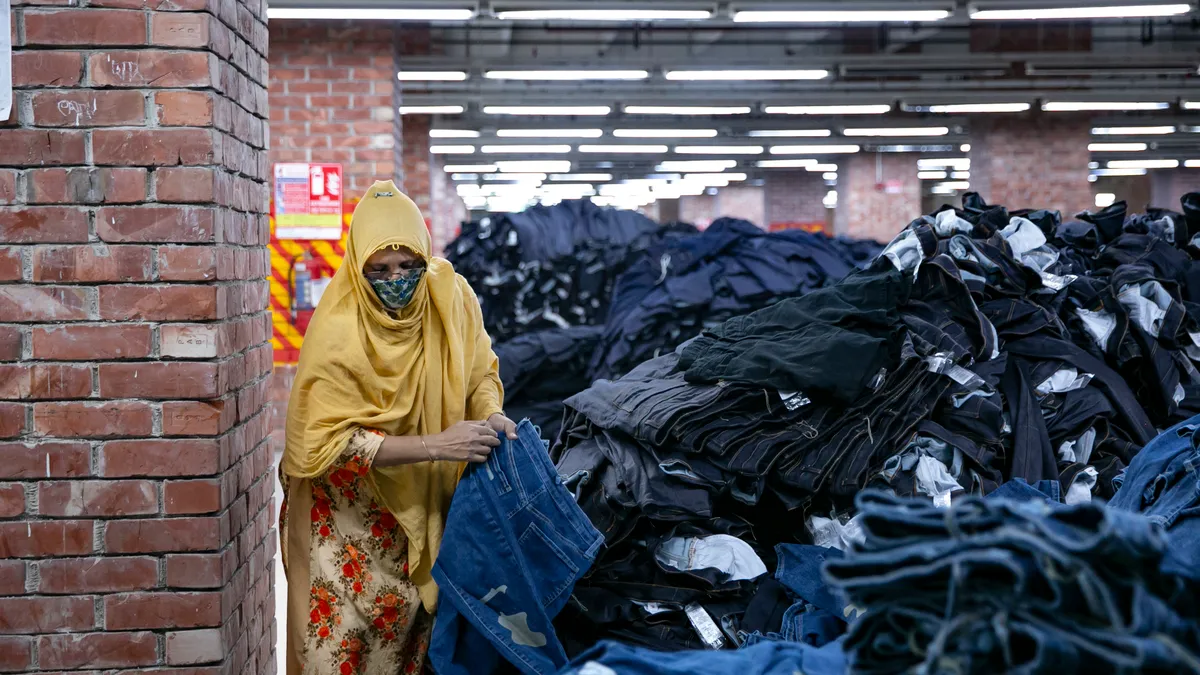Sanchita B. Saxena is a visiting scholar at the NYU Stern Center for Business and Human Rights and a professional faculty member at the Haas School of Business at UC Berkeley. All opinions are her own.
The word "partnership" has come to dominate how major apparel brands and retailers describe their relationships with their main suppliers.
Sometimes the term carries real meaning. H&M, for example, is the first global brand to increase unit prices for garment manufacturers to support the recent wage increase in Bangladesh.
But more often than not, global clothing companies boast about “partnerships” that their suppliers say don’t really exist.
Primark, an Ireland-based multinational fast-fashion retailer, says,“We aim to build longstanding and trusted relationships across our supply chain to enable us to work in partnership continually to improve how we operate and the impact we have,” according to its human rights policy.
Primark suppliers in Bangladesh I interviewed described a range of relationships that don’t fit with ordinary definitions of a respectful partnership. While one manufacturer stated that they have a close working relationship with Primark and get preferences to place orders, another described the relationship as very precarious.
“They sort of guarantee business, but they can still cancel. The risk of that is [always] there,” the supplier said.
Another manufacturer said they had to end their relationship with Primark because the company exerted extreme pressure on price, noting that they “could not continue our business [with Primark]. They would do a bidding system, and the price was lower each time, they would constantly be reducing my price.”
In its Global Sourcing Principles, British multinational retailer Marks & Spencer claims that “working in partnership is an important part of how we do business, and our ambition is to accelerate change by leading with others.”
But several of Marks and Spencer’s suppliers in Bangladesh said in interviews that they do not feel that the “partnership” is built on shared values. “They talk a lot but don’t deliver,” said one supplier.
Meanwhile, another supplier said, “They talk about it [partnership] more than anyone else, but in reality, it is the same …. They talk about open costing, but it doesn’t happen.”
Suppliers said that these companies use the promised benefits of a privileged relationship, at best, to try to lock in the product flows that they need without providing any particular advantages to manufacturers. At worst, global companies use the relationships as leverage to apply downward price pressure on suppliers.
“Being a ‘strategic partner’ helps with larger brands; you are somewhat assured that you will get volumes with them,” one manufacturer said. ”But there is fierce competition, and huge brands terminate agreements with strategic suppliers when we don’t give in to their requests. We see this happen regularly.”
It is well documented that the intense economic pressures suppliers face in this competitive environment is correlated with maintaining poor working conditions, increasing unwanted overtime demands and tolerating higher levels of employee harassment and gender-based violence. Ultimately, it is the workers who suffer the most when partnership is an empty promise.
Global apparel brands defend their claims of partnership with suppliers in countries like Bangladesh. In a statement, Primark noted that they “value greatly” their supplier relationships. They further noted that the company’s longest standing manufacturer has worked with them for over 24 years, and the majority have supplied Primark for over seven years.
“We are saddened to hear that any of our suppliers might feel compromised in the way you have described,” they said, adding that Primark does not routinely cancel orders.
“In the normal flow of business isolated orders may be canceled if, further to consultation with the respective supplier, they fail to meet our business terms and conditions,” they said. “We always follow up on any grievances that are brought to us, whether by a worker, factory, supplier or any other third party. Unfortunately, we are unable to do so in this case as the names of the suppliers remain undisclosed to us.”
Marks and Spencer’s did not respond to requests for comment via email and phone.
For its part, Swedish fast-fashion giant H&M states on its website that its “supplier partnerships are based on a commitment to working together … Having strong, long-term relations with our suppliers that are based on mutual trust and transparency is a priority for us.” H&M generally upholds its stated enthusiasm for partnership by paying its suppliers reasonable prices and adequately forecasting its needs to suppliers.
“[H&M tries] to give a realistic price; they are much better with costing, while many others are squeezing the price,” one H&M supplier said.
Another noted that they book factory capacity ahead of time, explaining that this allows suppliers to use their facilities efficiently and plan accurately for needed working hours. H&M’s strategic partners in Bangladesh also said that they appreciate the capacity-building initiatives and investments the company is willing to make to help its suppliers’ factories be more efficient, productive and environmentally conscientious.
“They are taking our factory to a different level,” one manufacturer said.
Unfortunately, most major brands and retailers do not live up to their partnership rhetoric. This has been evident during the recent violent demonstrations in Bangladesh over the minimum wage increases, where very few brands publicly committed to raising their prices to support higher wages.
A shift to a true partnership model would mark an important departure from the transactional approach that has characterized the globally outsourced apparel industry for decades. This traditional model has focused primarily on short-term interactions between corporate buyers and multiple suppliers, with the primary goal of minimizing the buyer's costs and maximizing order volumes, with very little commitment to future business. The promises that have surfaced in recent years of stable, long-term partnerships based on realistic price and time forecasting created hope not only for better business opportunities for both corporate buyers and suppliers, but also for greater protection of human and labor rights.
Partnerships should be clearly defined in detailed, legally binding contracts. Verbal commitments, which currently are common, are often violated. If global clothing companies and their suppliers are to build resilient partnerships that will improve working conditions in the supply chain, there needs to be a common understanding of what “partnership” actually means, including clarity of expectations and accountability on both sides.





















